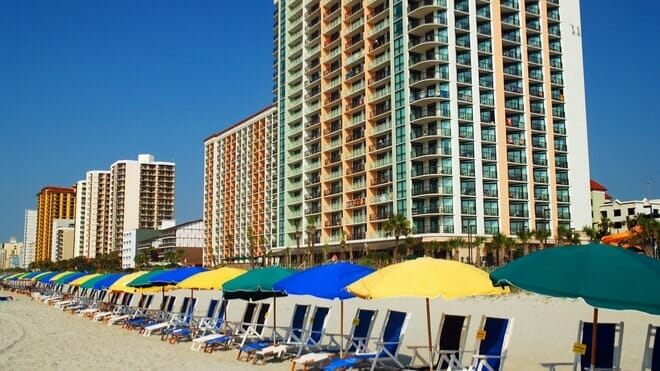RCI and II charge a yearly membership charge, and extra charges for when they find an exchange for an asking for member, and bar members from leasing weeks for which they already have exchanged. high point world resort timeshare how much. Owners can also exchange their weeks or points through independent exchange business. Owners can exchange without needing the turn to have an official association arrangement with the companies, if the resort of ownership consents to such plans in the original contract. Due to the pledge of exchange, timeshares often offer regardless of the area of their deeded resort. What is not often revealed is the distinction in trading power depending on the place, and season of the ownership.
Nevertheless, timeshares in highly desirable areas and high season time slots are the most expensive in the world, subject to demand normal of any heavily trafficked holiday area. An individual who owns a timeshare in the American desert neighborhood of Palm Springs, California in the middle of July or August will have a much reduced capability to exchange time, since fewer concerned a resort at a time when the temperature levels are in excess of 110 F (43 C). A major distinction in kinds of getaway ownership is in between deeded and right-to-use contracts. With deeded contracts the use of the resort is usually divided into week-long increments and are offered as real residential or commercial property via fractional ownership.
The owner is also liable for an equal part of the property tax, which usually are gathered with condo maintenance fees. The owner can potentially subtract some property-related costs, westlake financial numero such as real estate taxes from gross income. Deeded ownership can be as complex as outright property ownership in that the structure of deeds https://zenwriting.net/duneda5nv8/if-you-wish-to-get-out-of-your-timeshare-there-are-a-wide-range-of-timeshare differ according to regional residential or commercial property laws. Leasehold deeds are typical and deal ownership for a fixed time period after which the ownership goes back to the freeholder. Occasionally, leasehold deeds are offered in eternity, nevertheless many deeds do not convey ownership of the land, however merely the house or system (real estate) of the lodging.
Thus, a right-to-use agreement grants the right to utilize the resort for a specific variety of years. In lots of countries there are serious limits on foreign residential or commercial property ownership; thus, this is a typical approach for establishing resorts in nations such as Mexico. Care ought to be taken with this kind of ownership as the right to utilize frequently takes the type of a club membership or the right to use the reservation system, where the reservation system is owned by a business not in the control of the owners. The right to use might be lost with the demise of the managing business, because a right to use buyer's contract is usually only excellent with the current owner, and if that owner offers the property, the lease holder might be out of luck depending on the structure of the agreement, and/or current laws in foreign venues.
An owner may own a deed to utilize a system for a single specific week; for instance, week 51 generally includes Christmas. An individual who owns Week 26 at a resort can use just that week in each year. In some cases systems are sold as floating weeks, in which an agreement specifies the number of weeks held by each owner and from which weeks the owner might pick for his stay. An example of this might be a floating summer season week, in which the owner may select any single week throughout the summertime. In such a scenario, there is likely to be greater competitors during weeks featuring holidays, while lower competitors is most likely when schools are still in session.
Some are offered as turning weeks, frequently referred to as flex weeks. In an attempt to offer all owners an opportunity for the best weeks, the weeks are turned forward or backward through the calendar, so in year 1 the owner may have use of week 25, then week 26 in year 2, and after that week 27 in year 3. This technique provides each owner a reasonable opportunity for prime weeks, however unlike its name, it is not flexible. A variant form of real estate-based timeshare that combines functions of deeded timeshare with right-to-use offerings was developed by Disney Vacation Club (DVC) in 1991.
Get This Report on Information On How To Cancel A Contract With Timeshare

Each DVC member's home interest is accompanied by a yearly allotment of vacation points in percentage to the size of the home interest. DVC's vacation points system is marketed as extremely versatile and may be used in different increments for holiday stays at DVC resorts in a variety of lodgings from studios to three-bedroom villas. DVC's holiday points can be exchanged for holidays worldwide in non-Disney resorts, or might be banked into or obtained from future years. DVC's deeded/vacation point structure, which has actually been used at all of its timeshare resorts, has actually been adopted by other large timeshare developers including the Hilton Grand Vacations Business, the Marriott Vacation Club, the Hyatt House Club and Accor in France.

Points programs every year provide the owner a number of points equivalent to the level of ownership. The owner in a points program can then use these indicate make travel arrangements within the resort group. Numerous points programs are connected with large resort groups using a large selection of choices for destination. Many resort point programs supply flexibility from the conventional week stay. Resort point program members, such as World, Mark by Wyndham and Diamond Resorts International, may ask for from the whole available inventory of the resort group. A points program member may often request fractional weeks along with full or multiple week stays.
The points chart will permit factors such as: Appeal of the resort Size of the lodgings Number of nights Desirability of the season Timeshare properties tend to be house design lodgings ranging in size from studio units (with space for 2), to three and four bed room units. These larger systems can usually accommodate big families conveniently. Units generally include completely geared up kitchens with a dining area, dishwasher, tvs, DVD gamers, etc. It is not unusual to have washers and dryers in the system or available on the resort home. The kitchen area and facilities will show the size of the specific unit in concern.
Traditionally, however not specifically: Sleeps 2/2 would normally be a one bedroom or studio Sleeps 6/4 would typically be a 2 bed room with a sleeper couch (timeshares are offered worldwide, and every location has its own distinct descriptions) Sleep independently usually describes the variety of visitors who will not need to stroll through another guest's sleeping area to Great site use a washroom. Timeshare resorts tend to be rigorous on the number of guests permitted per system. how to get out of a timeshare contract in south carolina. Unit size impacts the cost and demand at any provided resort. The exact same does not be true comparing resorts in various locations. A one-bedroom system in a desirable area may still be more expensive and in greater demand than a two-bedroom accommodation in a resort with less need.